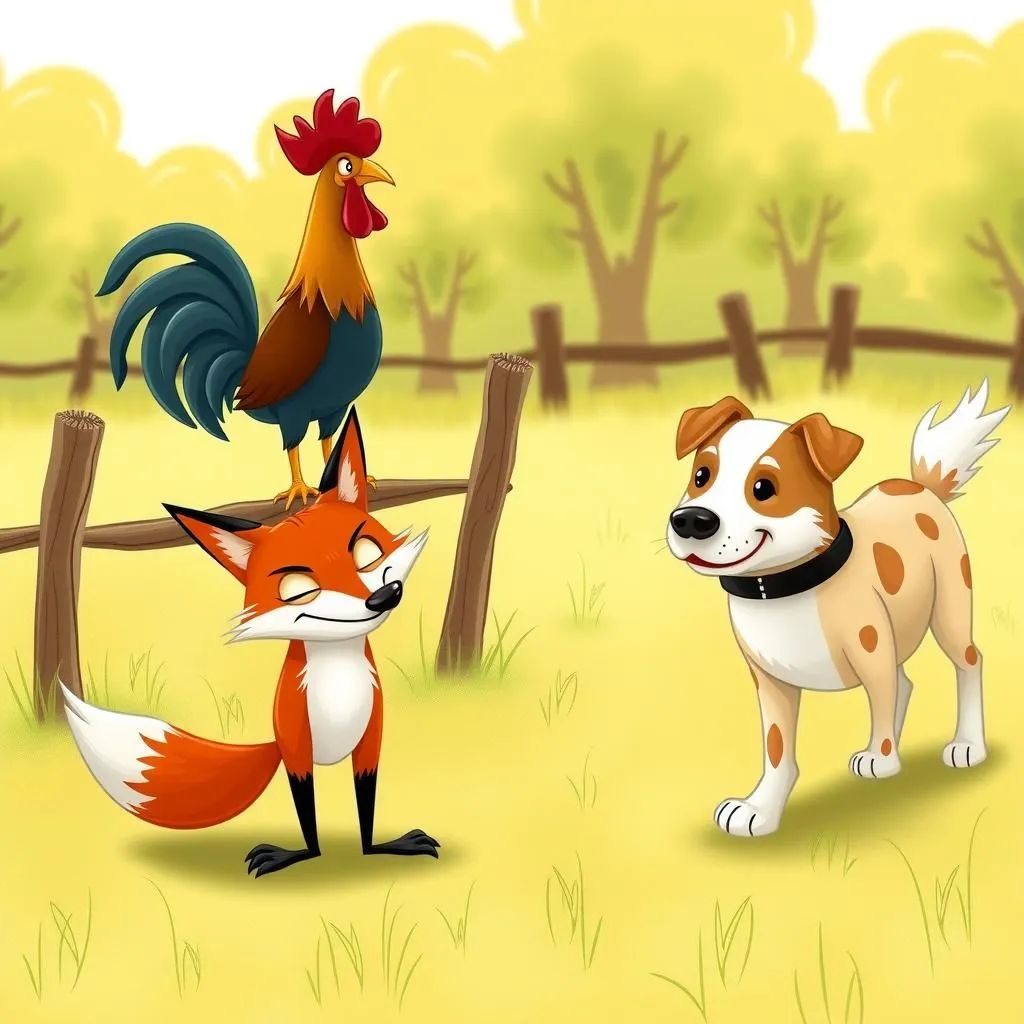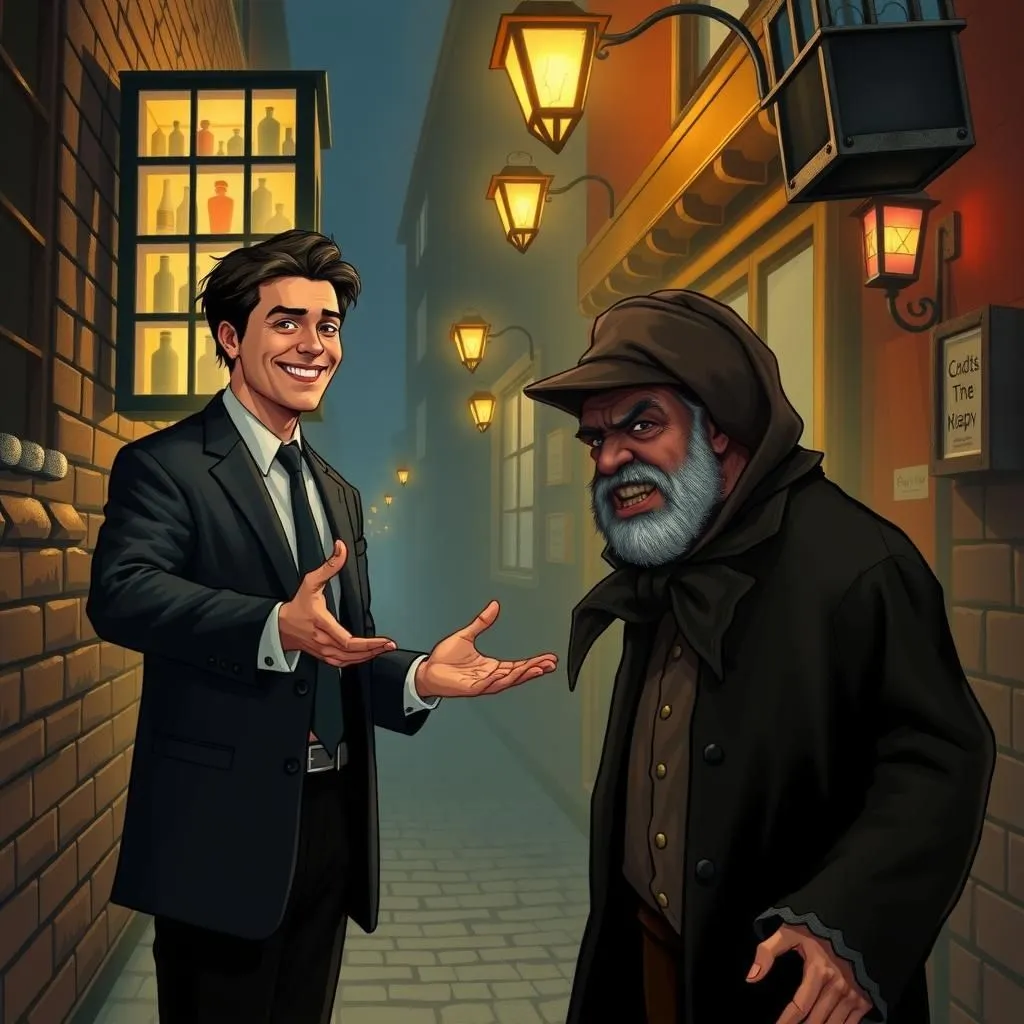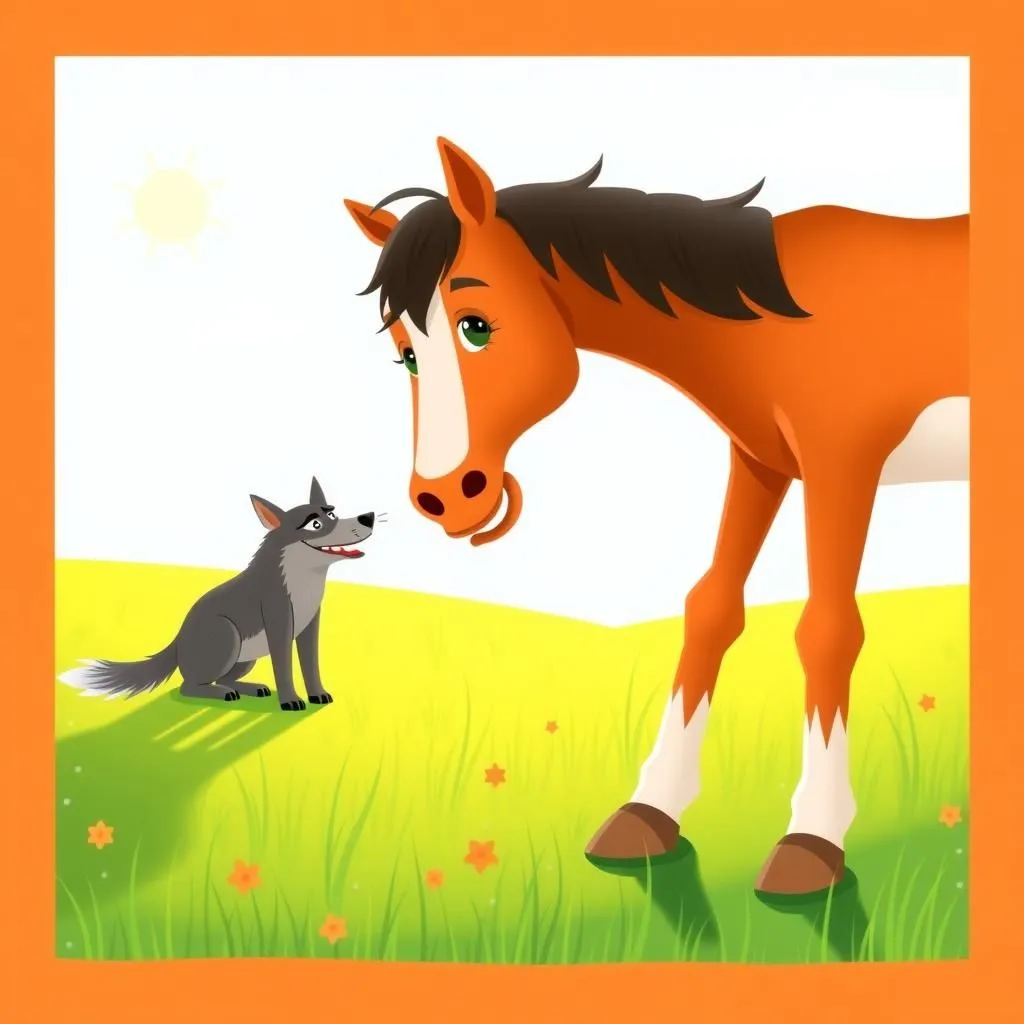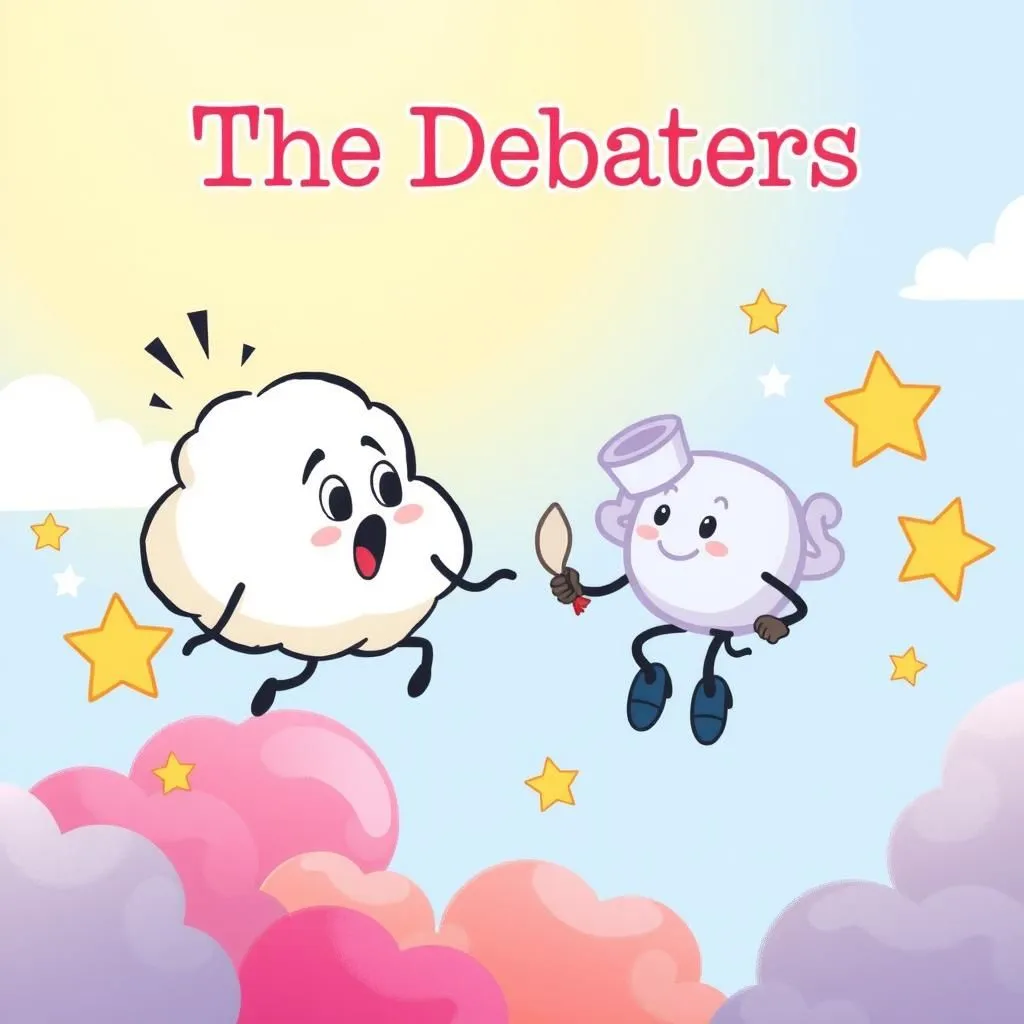
The Fox the Cock and the Dog
In "The Fox the Cock and the Dog," a clever Fox tries to deceive a Cock with the news of a universal truce, claiming that all beasts will coexist peacefully. However, when the Cock mentions the approaching Dog, the Fox quickly retreats, illustrating how cunning can backfire. This classic fable, part of impactful moral stories, teaches that those who attempt to trick others may end up ensnared by their own deceit.


